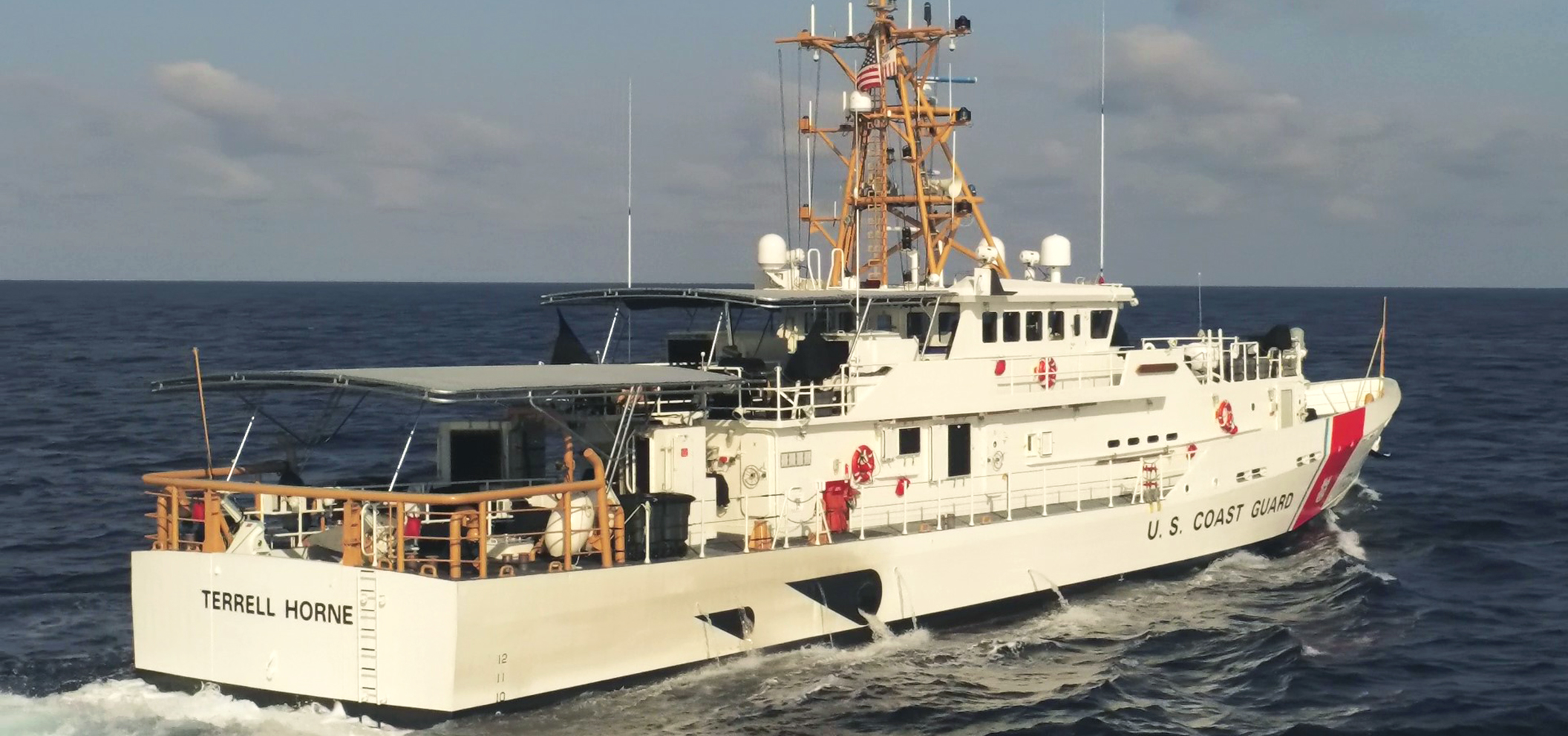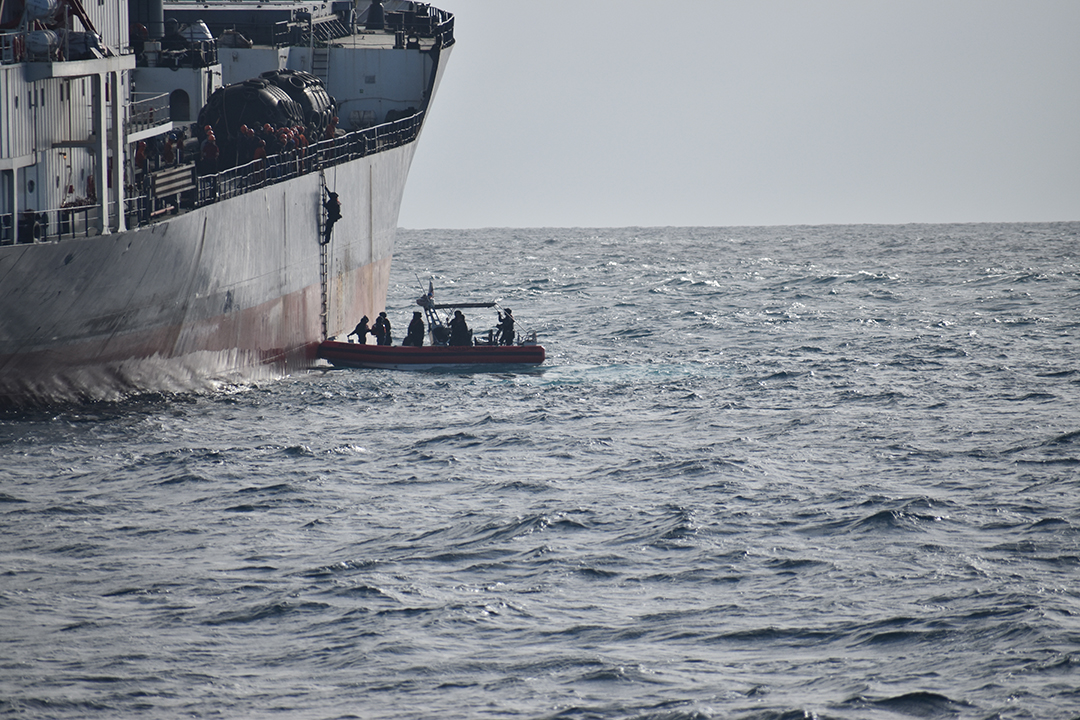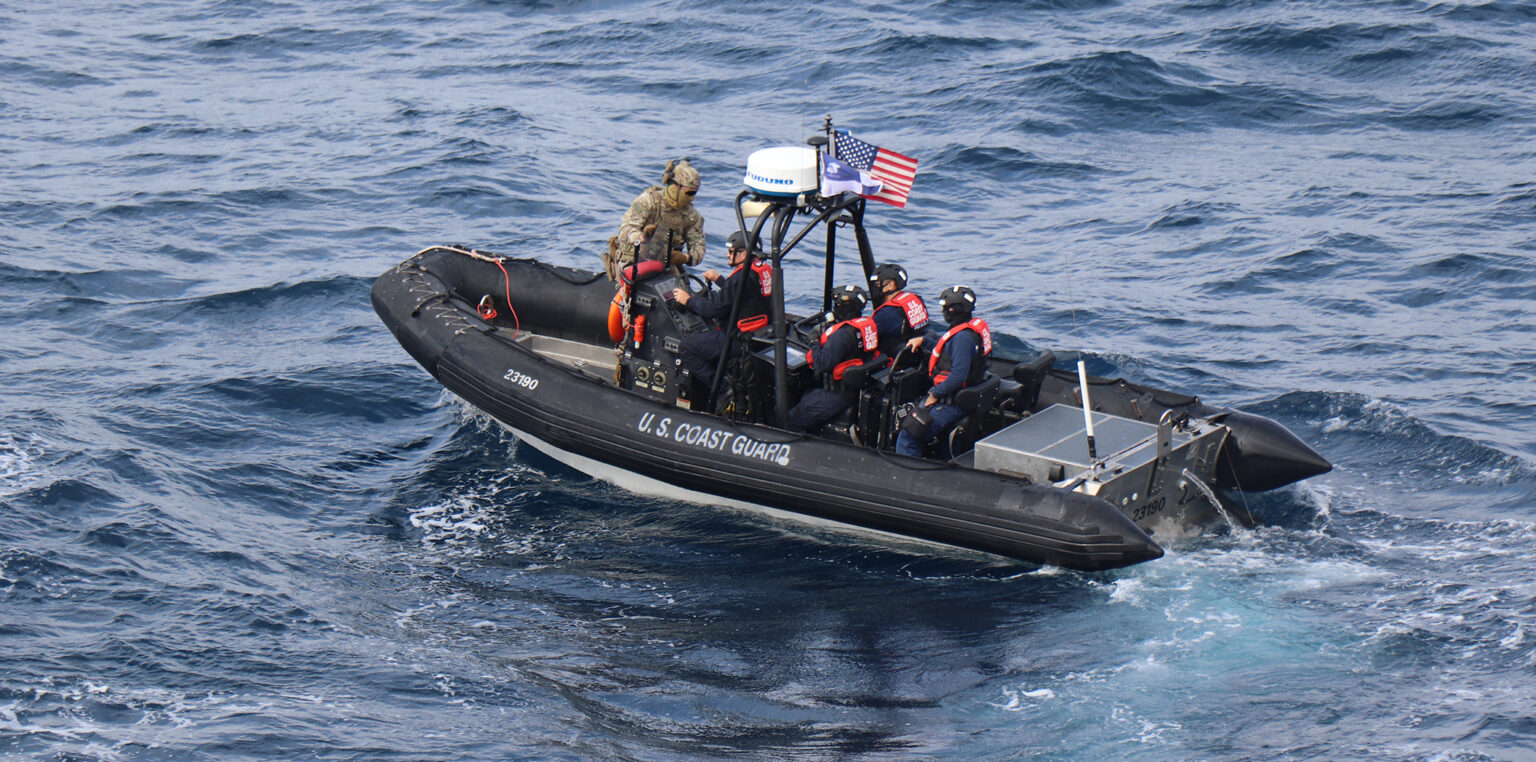U.S. Coast Guard Sailors in a small craft in an eastern Pacific operation to combat illegal fishing. U.S. SOUTHERN COMMAND
U.S. SOUTHERN COMMAND
The U.S. Coast Guard conducted an operation to help counter illegal, unreported and unregulated (IUU) fishing within the South Pacific Regional Fisheries Management Organization (SPRFMO) Convention area off the coast of Peru in October 2023.
A vast expanse of ocean, nearly a fourth of the Earth’s high seas account for the SPRFMO Convention area. Seventeen members from the Americas, Asia, Europe and Oceania as well as three cooperating noncontracting parties make up the SPRFMO Commission. In 2015, the commission agreed on a measure that gave authority to the United States and all SPRFMO members to board and inspect other members’ fishing vessels and record any suspected violations of SPRFMO conservation measures. The results and any suspected infractions discovered by the Coast Guard are submitted to the SPRFMO secretariat and the flag state of the boarded vessel for further investigation and action.
Counter-IUU fishing operations in other regional fisheries management organization areas have been ongoing by the U.S. Coast Guard for years. IUU fishing is now considered the No. 1 global maritime security threat, ahead of piracy. The early October operation against IUU fishing in the eastern Pacific is the second time that the Coast Guard conducted high-seas boardings and inspections under SPRFMO authority.

The boarding and inspection validated the successful use of procedures outlined in the 1995 United Nations Fish Stocks Agreement — which SPRFMO adopted in 2015 — to ensure the long-term conservation and sustainable use of fish stocks.
“The U.S. Coast Guard remains committed to conducting combined maritime operations and exercises throughout the Eastern Pacific and will continue to capitalize on every opportunity to work with, learn from and coordinate through our partners,” said Capt. James O’Mara, chief of enforcement for the 11th Coast Guard District. “The relationships our services build while planning and executing these operations are essential. The planning required to enable these operations are significant, and it only happens with the tremendous support of partners like Ecuador and Peru.”
Those engaged in IUU fishing often exploit the areas beyond a country’s exclusive economic zone (EEZ) as they operate beyond the reach of most law enforcement entities. The Coast Guard’s operation directly supported Central and South American partners and their desires to monitor and enforce sustainable fishing activity near their EEZs and expand maritime domain awareness and information sharing throughout the newly expanded Eastern Tropical Pacific Marine Corridor.
Law enforcement presence among a sizeable fleet of more than 400 fishing and transshipment vessels on the high seas was furthered by the Coast Guard’s actions. Most fishing in the Eastern Pacific is carried out by distant-water fishing vessels, in many cases supported by transshipment vessels. These extensive operations traverse the oceans and can involve criminal activity such as forced labor, human trafficking and maritime pollution. With such large numbers operating close to one another, these fleets can also have a negative impact on such environmentally sensitive waters as those of the Galapagos Islands, home to a vulnerable ecosystem.

“The U.S. Coast Guard is committed to working with our allies and partners to strengthen the international fisheries enforcement regime and stop the pervasive IUU fishing threat. Operation Southern Shield is just the latest example of that commitment, and we will continue doing our part to model and support rules-based order,” said Rear Adm. Andrew M. Sugimoto, the U.S. Coast Guard’s 11th District commander. “We applaud the SPRFMO Commission for adopting these latest inspection guidelines and hope to see additional management measures for oversight and accountability adopted in the future.
“Last year we operated off the Galapagos, this year off the coast of Peru, and we will continue to deploy aircraft, cutters and personnel to support our partners and monitor these distant-water fleets wherever they roam. These operations help bring like-minded countries closer together to protect vulnerable fish stocks, support the economic stability of coastal nations, the livelihoods of small-scale and artisanal fishermen, and safeguard ocean resources that fuel global populations and economies.”

